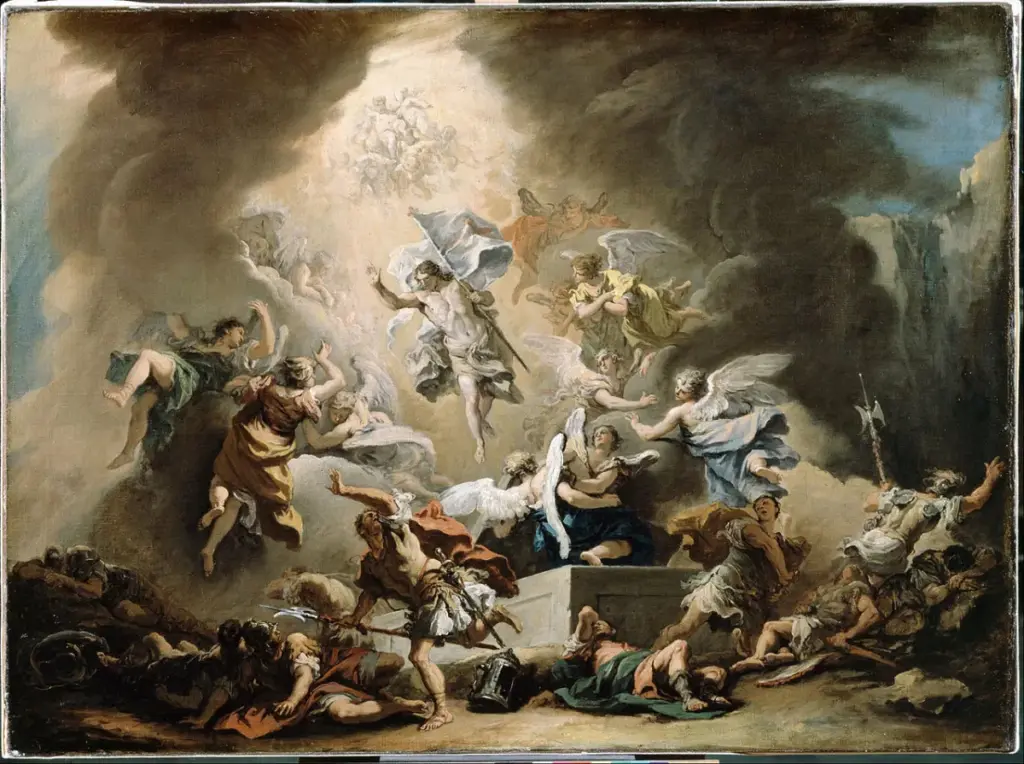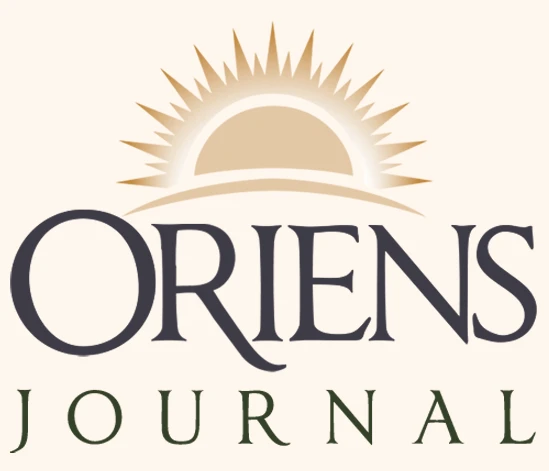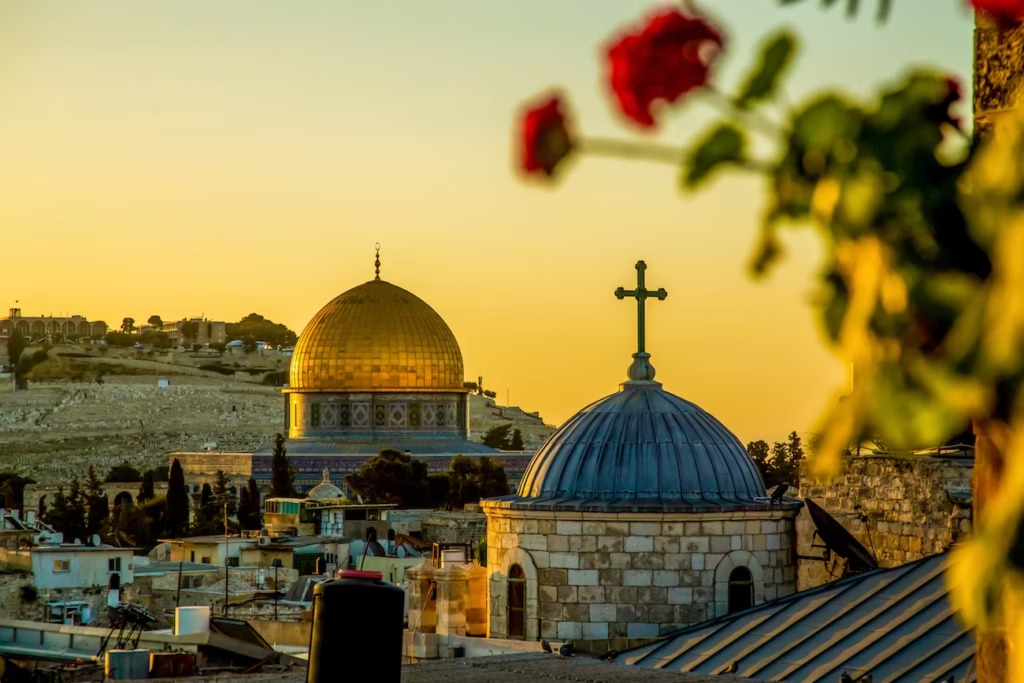by Fr Ken Webb FSSP (Originally published in 2009)
Do Christians and Muslims worship the same God?
In his book Crossing the Threshold of Hope, published in 1994, Pope John Paul II wrote that
“In Islam all the richness of God’s self revelation, which constitutes the heritage of the Old and New Testaments, has definitely been set aside. Some of the most beautiful names in the human language are given to the God of the Koran, but He is ultimately a God outside of the world, a God who is only Majesty, never Emmanuel, God with-us. Islam is not a religion of redemption. There is not room for the Cross and the Resurrection. Jesus is mentioned, but only as a prophet who prepares for the last prophet, Muhammad. There is also mention of Mary, his Virgin Mother, but the tragedy of redemption is completely absent. For this reason not only the theology but also the anthropology of Islam is very distant from Christianity.”
Pope Benedict XVI, in that widely reported paper delivered to scholars at the University of Regensburg, saw fit to quote one who based upon hard experience had a rather dim view of the practical and concrete expressions of the doctrine of Muhammad, namely, the Byzantine Emperor Manuel Paleologus II, who wrote: “show me just what Muhammad brought that was new, and now you’ll find things only evil and inhuman; such as his command to spread by the sword the faith he preached.” The Pope then went on in his speech to contrast the Christian conception of God as rational with the Islamic notion of a God who is utterly transcendent, beyond reason, inaccessible to reason, and indeed, a God who could be equally in accord with or opposed to reason. God is love, God is rational, God is Truth – all of these profound theological doctrines of the Catholic faith are utterly incompatible with the God conceived and described by Muhammad in his Koran.

Islam and the Trinity
The question of Islam, and how it relates to the Catholic faith, has been one much considered and spoken of in recent years. Yet there has been not much discussion or reporting of how Islam should be viewed from a Catholic point of view: for example, is it true that Catholics and Muslims worship the same God? Do Muslims respect Jesus? Do they confess that he is God, or merely a human prophet? What does the Koran have to say about the doctrine of the Trinity?
This brief article does not attempt an exhaustive study of Islam, of the collections of sayings of the prophet, or an examination of the various schools of Islamic jurisprudence. Rather, it simply examines various doctrines set forth in the Koran, which Muslims imagine to be the word of God dictated to Muhammad, and based on such an examination to answer the above questions for Catholics.
Let us begin with a brief historical review of who Muhammad was, and the religion that he preached. Muhammad came from a tribal group of originally pagan Arabs, whose practice of idolatry was long established and well known. The religion which he invented is called Islam, which means submission to the will of God. Its adherents, those who submit to Islam, are called Muslims.
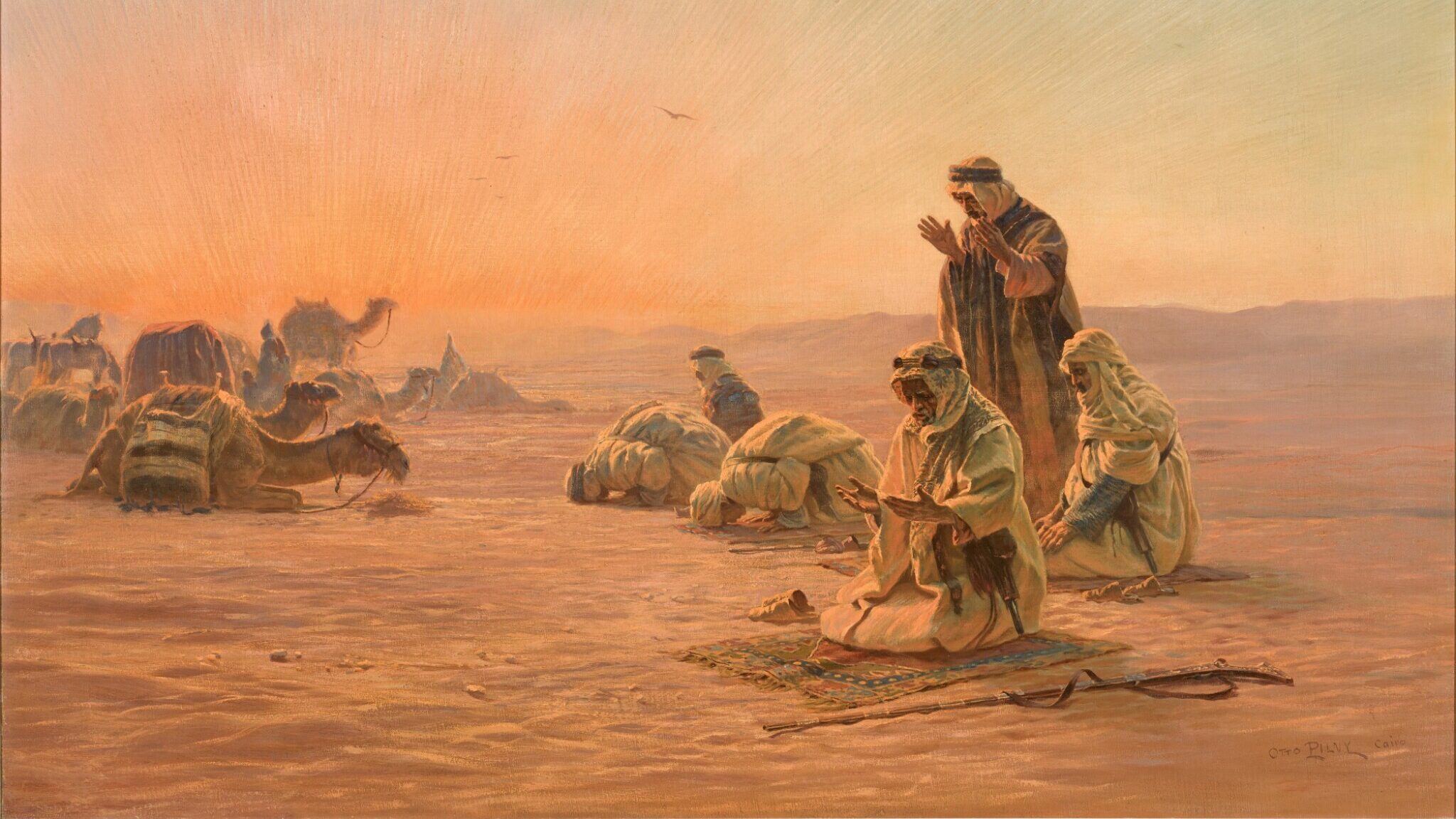
Stark simplicity
The creed of Islam is very stark and very simple. Its primary beliefs are summed up in the “shahada”, the Islamic confession of faith: “there is no god but Allah, and Muhammad is his prophet.” Muslims often imagine that this simplicity, as opposed to the complexity and mystery of the Nicene Creed and the doctrine of the Trinity, are proofs of the truth of their religion and of the falsehood of Christianity. The Koran, which is the book containing Muhammad’s alleged revelations from God through the archangel Gabriel, is held by Muslims to be the literal word of God, dictated from heaven.
Let us examine now what Muhammad has to say in the Koran about what his followers are to believe. Sura 3 [67] in the Koran tells us that “Abraham was not a Jew nor yet a Christian; but he was true in Faith, and bowed his will to Allah’s (which is Islam), and he joined not gods with Allah.” And what about Jesus and the religion which He founded? He ascended into heaven almost 600 years before Muhammad died, but, according to the Koran, he was also a great prophet, and – now this might surprise you a little bit, but according to the Koran, he was also a Muslim. Sura 3 [52] tells that Jesus appeared among the children of Israel, and “when Jesus found unbelief on their part he said: ‘who will be my helpers to the work of Allah? Said the Disciples: We are Allah’s helpers: we believe in Allah, and do thou bear witness that we are Muslims.”
Now, it might not be ecumenically sensitive, but from a Catholic point of view, whether or not a person, or a religion, confesses the divinity of Jesus Christ is actually very important. If a person, or a religion, explicitly rejects the divinity of Christ, the crucifixion, the resurrection – that is to say, if one denies the doctrine of the Incarnation – then it follows that any claim of compatibility with orthodox Christianity must be rejected as delusional or utterly duplicitous.
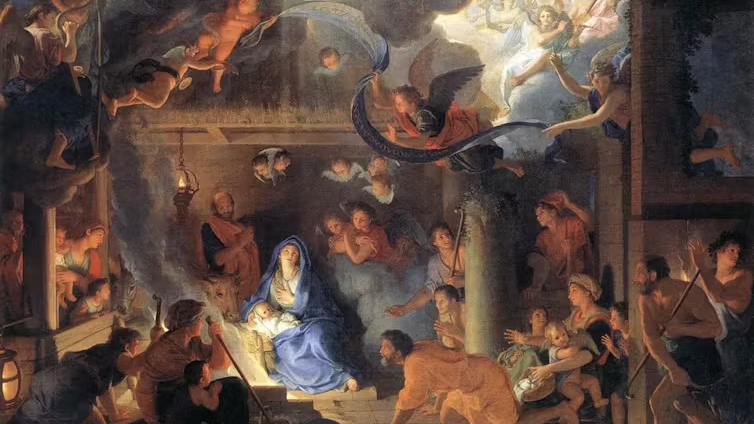
Divinity denied
In the Nicene Creed, Catholics confess that “I believe in … One Lord Jesus Christ, the only-begotten Son of God, born of the Father before all ages, God of God, light of light, true God of true God; begotten, not made; consubstantial with the Father, by Whom all things were made.” Now those doctrines, asserting the divinity of Christ, are found in all approved Creeds of the Church, and they are regarded as basic touchstones of orthodoxy. Let us see then what the Koran has to say about the divinity of Christ.
At the risk of spoiling the surprise, the Koran repeatedly and explicitly denies the divinity of Christ. In the Koran Muslims are taught that Christ was human, that he was a prophet, just like Moses, Abraham, and Muhammad. In Sura 4 [171] we are told: “O people of the Book! Commit no excesses in your religion; nor say of Allah ought but the truth. Christ Jesus, the son of Mary, was (no more than) a Messenger of Allah, and his Word, which He bestowed on Mary, and a spirit proceeding from Him: so believe in Allah and his Messengers. Say not ‘Trinity’: desist: it will be better for you, for Allah is one god: glory be to him: (far exalted is he) above having a son.” And in the next line we are told that “Christ disdaineth not to serve and worship Allah, nor to the angels.”
The denial of the divinity of Christ does not stop there however. This is a matter which Muhammad, and whoever it was that gave him his revelation, really wants to emphasise. Sura 5 notes that: “In blasphemy indeed are those who say that Allah (God) is Christ, the son of Mary.” Also, “they do blaspheme who say: ‘God is Christ, the son of Mary.’” According to the Koran, “Christ, the son of Mary, was no more than a messenger.” It was pparently revealed to Muhammad that: “…The Christians call Christ the son of God. That is a saying from their mouth; (in this) they but imitate what the Unbelievers of old used to say. Allah’s curse be upon them; how they are deluded from the truth.” [Sura 9, 30] In Sura 19 there are several denials that God would ever beget a son.
Finally, in Sura 39, we are told that “Had Allah (that is, God) wished to take to himself a son, he could have chosen whom He pleased out of those whom he doth create; but glory be to him! (He is above such things.) He is Allah, the one, the irresistible.” Given what we have seen of the very clear denial that Christ is God, that Christ is the Son of God, it should be pretty clear that Christians and Muslims do not “worship the same one God.” The Koran repeatedly and explicitly denies the divinity of Christ, and that God could have a Son, still less that such a Son could take is willing to pit itself against a Europe which seems so determined to deny its Christian roots and identity. Surely this is an undertaking of the David and Goliath variety. At a time when Europe is deathly silent about some ,500 years of formation in a Christian context, the questions TriaLogos poses ring out loud and clear: what is the Christian European culture and who is a Christian in the midst of all the ideologies and religions storming across the globe?
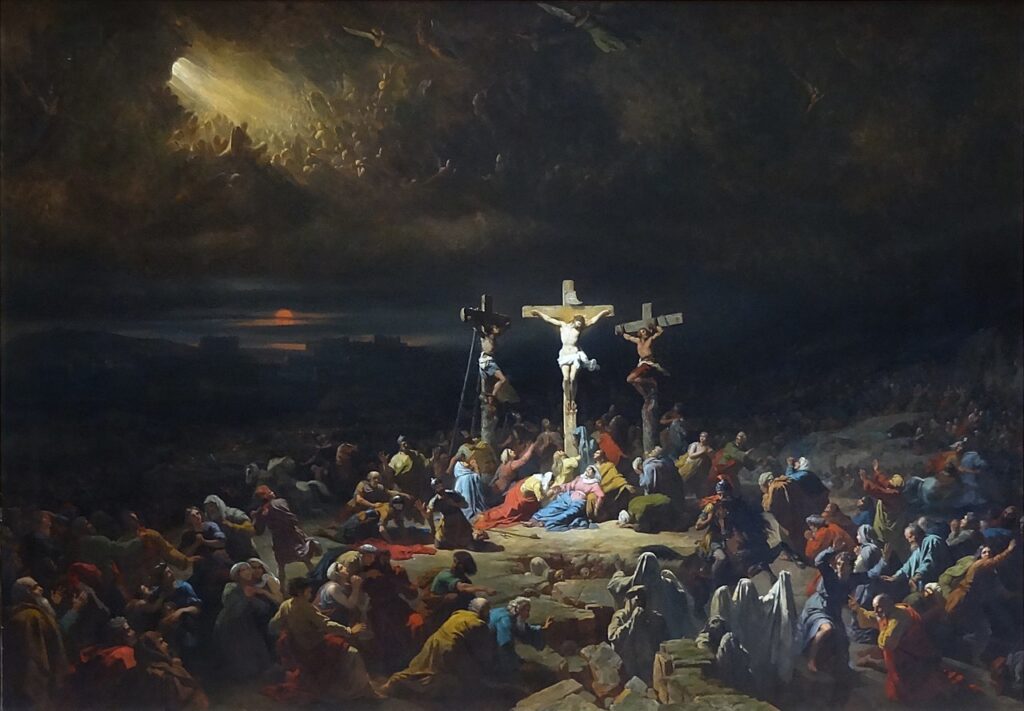
No crucifixion
That is why we should not be surprised to read that in the Koran, like some of the ancient Gnostic heretics, Muhammad denies that Christ was ever crucified. Such a fate would be unseemly for a prophet of Allah. So in Sura 4 we are told: “That they said (in boast), ‘We killed Christ Jesus, the son of Mary, the messenger of Allah’ – but they killed him not, nor crucified him, but so it was made to appear to them, and those who differ therein are full of doubts, with no certain knowledge, but only conjecture to follow, for of a surety they killed him not – Nay, Allah raised him up to himself.”
And there you have the Islamic repudiation of the whole Incarnation. Muhammad taught that Christ was only man, and a prophet like other prophets. He utterly denied the Trinity. With the rejection of the Incarnation goes the entire sacramental system – there is no Real Presence in the doctrine of Muhammad. No Mass, no priesthood, no sacrament of marriage (Muhammad had fourteen wives, eleven at one time; he married the youngest when she was nine years old), along with no prohibition on divorce in such polygamous relations.
In the Creed Catholics confess belief in the divinity of Christ, in His crucifixion, death and resurrection. All of these are denied by Muhammad.
Christians also confess belief in the Trinity. In the Nicene Creed we affirm our belief in “The Holy Ghost, the Lord and Giver of life. Who proceedeth from the Father and the Son, Who, together with the Father and the Son is adored and glorified.” But Muhammad says in Sura 5 that “they do blaspheme who say: God is one of three in a Trinity: for there is no God except one god.” As well as “say not ‘Trinity’: desist: it will be better for you; for Allah is one god; glory be to him; far exalted is he above having a son.”
It should by now be quite clear that those who claim that Christianity and Islam share the same faith, or that ultimately we worship and confess the same God, are manifestly in error. The Islamic denial of the Trinity, the divinity of Christ, the Incarnation, the crucifixion and resurrection, all of which are clearly set out in the Koran, must settle the matter for anyone who grasps even the most basic teaching of the Apostle’s or the Nicene Creed. We do not worship the same God. Islam and Christianity are utterly antithetical to one another. If one is true, the other must necessarily be false. If the Nicene Creed is true, then Islam is necessarily false. Keep that in mind the next time someone tells you that Islam and Christianity ultimately worship the same God, and ask them about the Trinity, the Incarnation, and the divinity of Christ, and how they reconcile the claims of the Nicene Creed with those of the Koran.
